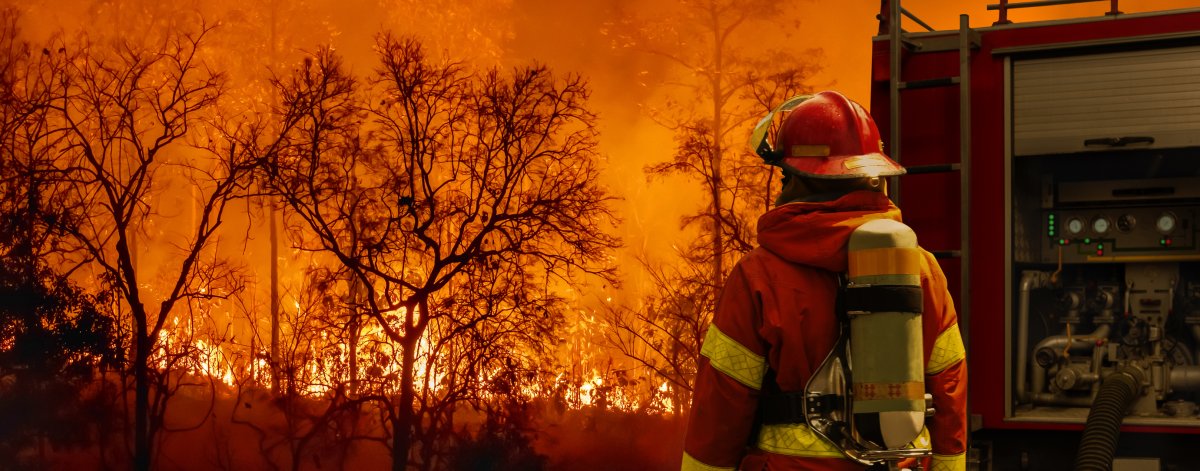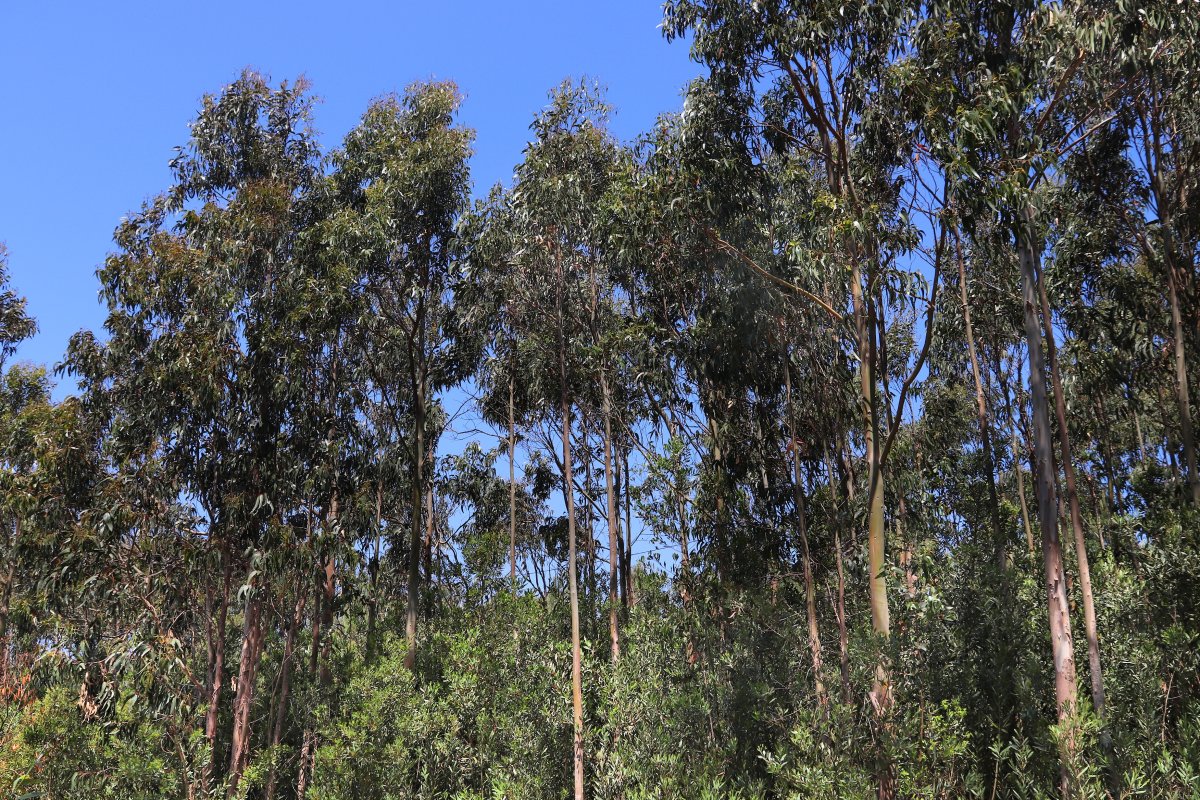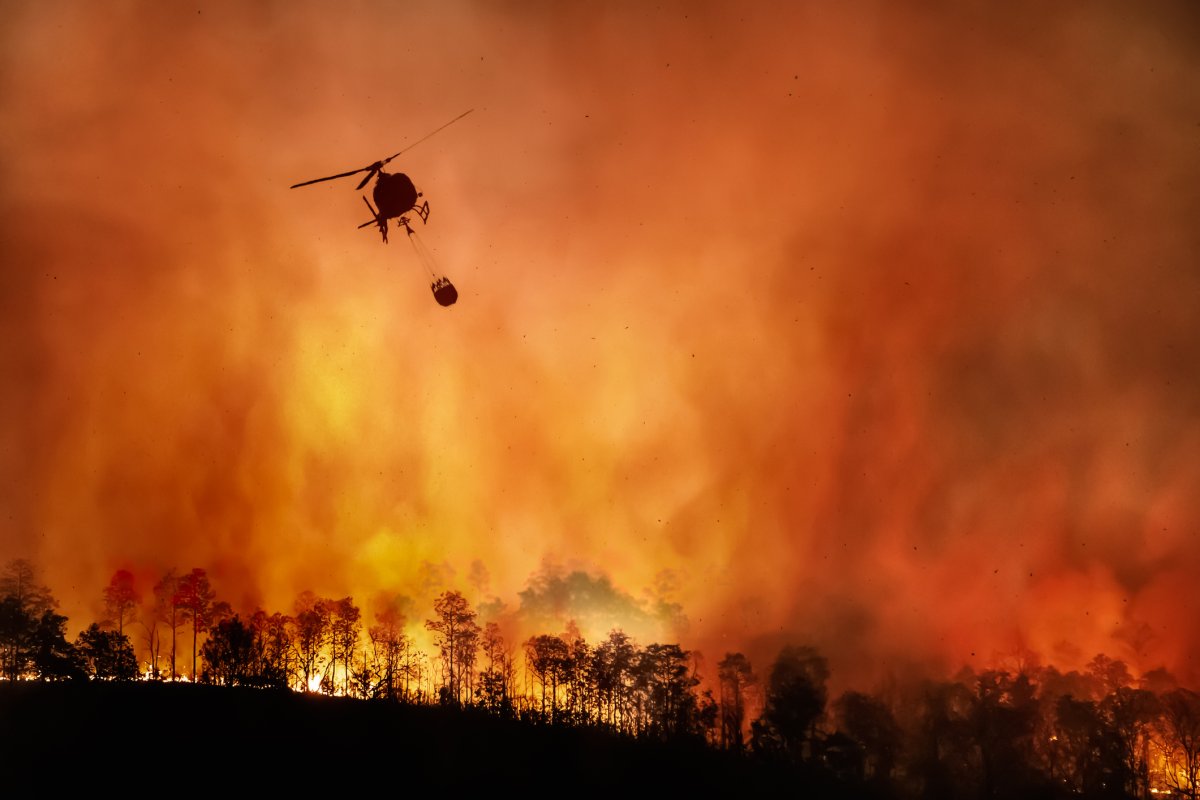After two of the hottest summers on record, the effects of the climate crisis are being felt acutely all over the world. In the U.S. alone, over 55 million acres of land have been burned since 2015 due to wildfires.
A report in early 2022 by the UN Environment Programme estimated that the number of extreme wildfires experienced globally will increase by 50 percent by 2100, largely as a result of increasing temperatures and widespread drought.
Wildfires can be deadly, as is seen in MSNBC's newly released documentary, From Devil's Breath. Produced by Leonardo DiCaprio, Harri Grace and Chloe Leland, and directed by Orlando Von Einsiedel, the film tells the story of a community working together to recover from one of the most devastating wildfires in European history using the restorative powers of nature itself.

Deadliest Wildfire in Portugal's History
On June 17, 2017, four separate fires broke out in Portugal's rural Pedrógão Grande municipality amid one of the hottest, driest summers on record. Throughout the season, over 1.2 million acres of land were burned across the country. In Pedrógão Grande alone, the fire claimed 66 lives and left a further 253 people injured, making it the deadliest wildfire in Portugal's history.
"The devastation in the Pedrógão Grande region is hard to describe," From Devil's Breath director Von Einsiedel told Newsweek. "Even several years since the fire, much of the landscape still bears the scars of that apocalyptic inferno."
However, despite the devastation, Pedrógão Grande's residents took the filmmakers by surprise.
"I thought we might meet a more cowed community after this tragedy," Von Einsiedel said. "What we found was a community coming together to honor those who had lost their lives and stand by each other to heal from this collective trauma, while at the same time working hard to make sure a tragedy of this nature could never happen again."
Tom Crowther, the team's lead climate change expert, encountered a similar air of resilience. "Despite the devastation of the fires, hope prevailed," he told Newsweek. "This hope was not only for a better future for the people living in the region. People I spoke to were also genuinely motivated by the idea that their restoration of local nature can make a small contribution in the global fight against biodiversity loss and climate change."
The fire is thought to have been fueled by the region's abundance of eucalyptus trees, a fast-growing but highly flammable species native to Australia. To protect against future devastation, the community are replanting the scorched land with indigenous species of tree, such as cork and oak, which are known to cool and moisten the air and soil around them.

Diverse, indigenous ecosystems are more resilient against fire and may also provide a protective barrier around human settlements.
"There is an old forest called Mata da Margaraça near Pedrógão Grande that is surrounded by eucalyptus plantations," Von Einsiedel said. "On the day of the fire everything around the old forest burned but, despite the searing heat, the flames stopped on the edges of this forest.
"By simply allowing and supporting the growth of the right mix of indigenous trees to grow in areas where land has been degraded, the potential benefits are enormous, from increasing biodiversity through to carbon absorption and creating more fertile, economically-beneficial land."
However, Crowther explained that this transformation would not occur overnight. "The move to restore diverse mixtures of native tree species will be critical for rebuilding healthy ecosystems that trap moisture in the soil and limit the spread of fires. But the real challenge in this region is finding the solutions to make this native biodiversity an economically sustainable option for those people.
"Local cork and oak trees seem to provide economic options for some people, but it will take some time before these slow-growing species can be productive."
While From Devil's Breath follows the story of one particular community in Portugal, the lessons it teaches can be applied all over the world.
"The extreme fire in our film may have affected one region of Portugal, however its root causes are tied to the climate crisis which is impacting all of us on this planet," Von Einsiedel said. "Americans, Australians, Brazilians, Turks, Russians and many other nationalities will sadly know only too well how devastating recent forest fires in their countries have been.
"Our film is not just a film about one specific fire in Portugal. It's universal and global in scope, and is a harbinger of the future we are heading towards unless things change rapidly."
How Does a Wildfire Start?
All it takes is a spark. Sometimes even the sun's heat is enough to start off an inferno.
During periods of drought and extreme heat, dried-out trees and vegetation easily burst into flame, allowing the fire to spread at speeds of up to 14 miles per hour.
As of November 2022, the U.S. National Interagency Fire Center has reported 61,390 wildfires, burning over 7,250,000 acres of land.
"We're pretty confident that climate change is having a huge impact on wildfires globally," Rory Hadden, an expert on fire safety at the University of Edinburgh, previously told Newsweek. "Certainly, in the U.S. [wildfires] are becoming harder and harder to fight."
In 2021, fire suppression in the U.S. alone cost a record-breaking $4.389 billion as fires became more extreme and more persistent.

Wildfires in Your Own Backyard
Whether it is a neglected bonfire or a discarded cigarette, human carelessness is a major risk factor when it comes to wildfires. The National Interagency Fire Center has estimated that, on average, 80 percent of all wildland fires on public lands in the U.S. are caused by humans.
If you live in a fire-prone area, it is important to keep vegetation and mulch away from your property and be extra cautious around outdoor fires.
In case of wildfire, Hadden said: "Alert the fire service...Don't put yourself in any harm's way...I'm very reluctant to suggest anyone try to fight a wildfire [on their own]. It's extremely hard to do."
As global temperatures and wildfire incidents continue to soar, it is easy to feel overwhelmed. But Von Einsiedel said that it was important not to feel defeated: "Humanity faces a lot of challenges at the moment. But we cannot stop and give up. We have to keep looking forward.
"The resilience of the people in our film to keep doing that will always stay with me, and I hope it will resonate with everyone who watches it."
From Devil's Breath is now available to stream on Peacock.
Do you have an animal or nature story to share with Newsweek? Do you have a question about wildfires? Let us know via nature@newsweek.com.
Uncommon Knowledge
Newsweek is committed to challenging conventional wisdom and finding connections in the search for common ground.
Newsweek is committed to challenging conventional wisdom and finding connections in the search for common ground.
About the writer
Pandora Dewan is a Senior Science Reporter at Newsweek based in London, UK. Her focus is reporting on science, health ... Read more
To read how Newsweek uses AI as a newsroom tool, Click here.






